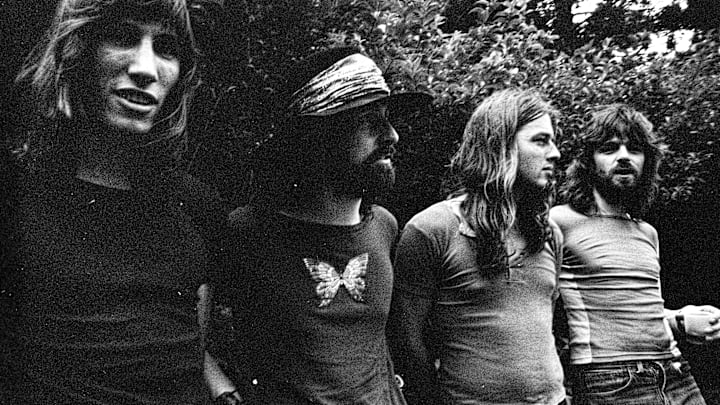"Money" is one of Pink Floyd's most famous songs, released on their 1973 album The Dark Side of the Moon. What a song it is! Written by bassist Roger Waters, the song stands out for its distinctive 7/4 time signature and iconic opening sound effects, which feature cash registers, coins, and paper tearing. These sounds create an auditory motif that reflects the song’s critique of materialism and wealth.
The lyrics of "Money" critique greed, consumerism, and the corrupting influence of wealth. Basically, it's the complete opposite of the character Gordan Gekko from the film Wall Street, who argued: "Greed (for the lack of a better word) is good. Greed is right. Greed works. Greed clarifies, cuts through, and captures the essence of evolutionary spirit."
Waters wrote the song from a cynical perspective (in the good way), addressing the contradictions between the desire for money and the alienation it can cause. Waters explored similar themes throughout his career, including his 1992 album Amused to Death." Lines like "Money, it’s a gas" convey the allure of wealth, while later verses express a more detached, critical view.
The musical structure is another interesting matter. The song is unique for its 7/4 time signature during the verses, which gives it a slightly off-kilter feel. However, because the band plays tightly and with conviction, the rhythm feels like it has a natural swagger rather than being too perplexing to the listener. So it's still a danceable song despite not consistently having a "four on the floor beat." This feel changes to a more traditional 4/4 signature during David Gilmour’s guitar solo, apparently to make it easier to solo over the vamp (the musical term, not a slang term for vampires).
Oh, and Roger Waters' bassline is one for the ages. If you don't love that bassline, you pretty much don't love bass.
What makes "Money" by Pink Floyd so diverse
The combination of progressive rock elements, bluesy guitar, and saxophone (played by session musician Dick Parry) gives "Money" its distinctive sound, which is why people recognize "The Dark Side of the Moon" as being a bit of an emotional rollercoaster. It's a song that's had a cultural impact, for sure. "Money" became a commercial success, reaching No. 13 on the Billboard Hot 100 chart in the U.S., making it one of the few Pink Floyd songs to become a radio hit.
Despite being an anti-capitalist anthem, its success ironically reflects the commercial viability of critiques on wealth. Nonetheless, it remains a staple in classic rock and is frequently referenced in pop culture, and usually without too much emphasis on that irony. Really, people are more likely to remember the music and its basic theme than dwell extensively on how, yes, musicians need to make money while simulatenously making commentary on society.
David Gilmour’s guitar solo and the song's live value
Gilmour's solo is one of the song’s standout features of the track, with its bluesy, expressive style. The use of reverb and sustain created a rich, spacious sound that’s been widely praised. It's a solo that one can visualize. It's been a really good tune for live performance, too (and David Gilmour recently stated that, even though Pink Floyd has disbanded, he has a "trove" of new music ready for greedy ears).
"Money" has been a regular part of Pink Floyd’s live performances and solo tours by both Gilmour and Waters. The song often features extended jam sessions, especially during Gilmour’s guitar sections. "Money" remains one of Pink Floyd’s most memorable and catchy tracks, representing the band’s experimentation with sound effects, non-standard time signatures, and their thematic focus on societal critiques.
It's often highlighted as a key track (and, for some, the key track) from The Dark Side of the Moon, an album that established Pink Floyd as one of the leading progressive rock bands of all time. It's a song that manages to be about as epic as "Shine On You Crazy Diamond," but without being quite as lengthy.
Trivia
Waters wrote the lyrics himself, though the end does contain guest voices who improvised lines. Wings' guitarist Henry McCullough is featured. Interestingly, Paul McCartney was close to being a guest voice in the song's closing conversational collage, but he didn't make the cut because he was too performative.
